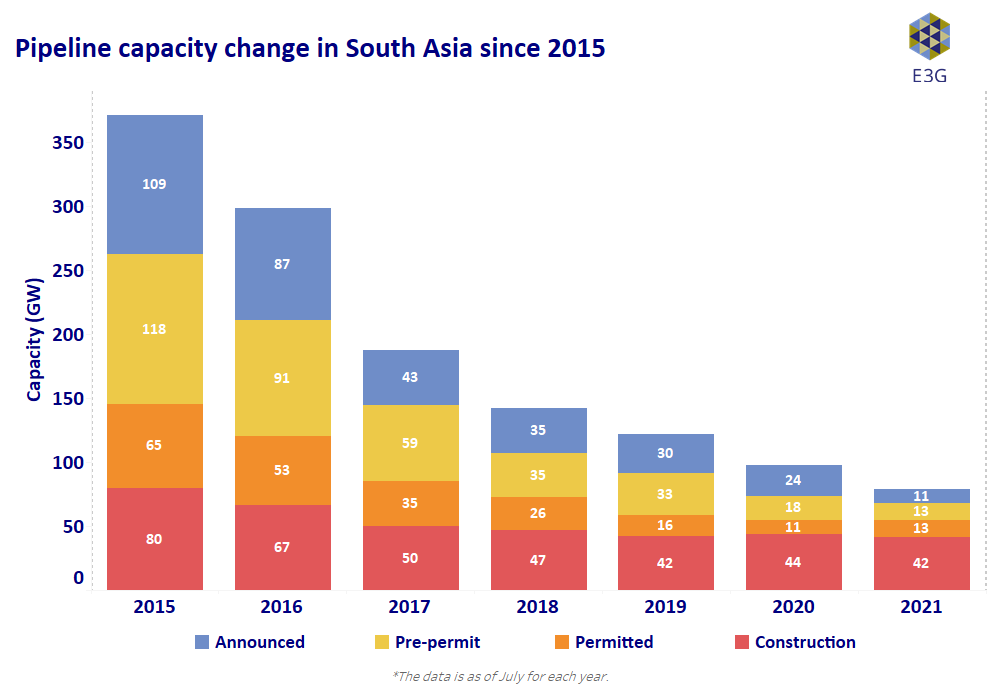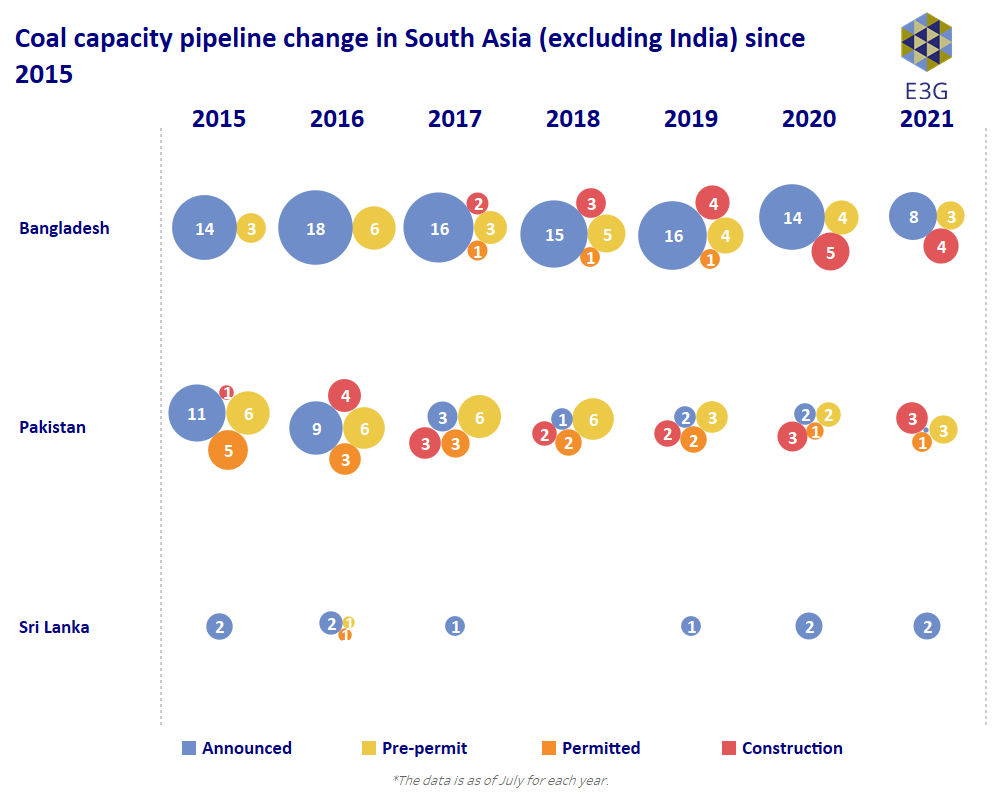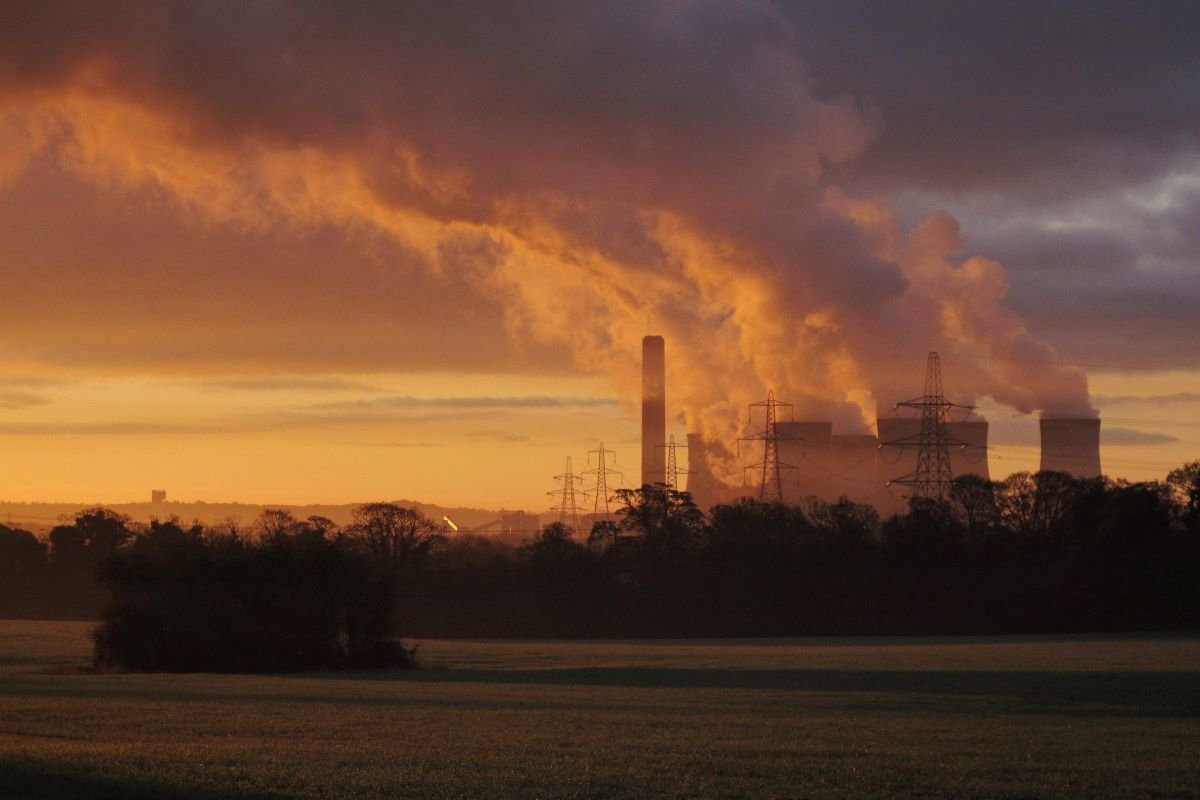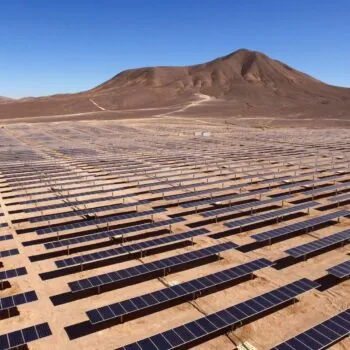- South Asia has a pre-construction pipeline of 37.4GW, with India’s 21GW pipeline accounting for 56% of this.
- The pipeline has contracted by 87% since 2015, with cancelled capacity outnumbering capacity going into operation by a ratio of 6.6:1.
- Three out of four countries in South Asia (Sri Lanka, Bangladesh and Pakistan) are showing leadership in cancelling projects and making political statements that they will no longer pursue new coal power.
- Significant socio-economic headwinds to new coal in India have led to State-level commitments to no new coal, opening a pathway for national progress.

South Asia accounts for 32% of the non-OECD pipeline (outside China), however this is an 87% decrease in the scale of the pipeline since 2015 (from 292GW to 37GW). Four countries in South Asia have previously considered or are currently considering coal: Bangladesh, India, Pakistan and Sri Lanka. Together, they account for 13% of the global pre-construction pipeline (37.4GW). India alone is home to 7% (21GW) of the global pipeline, which is 56% of the South Asian total. As in South-East Asia, coal has faced significant headwinds since Paris, and three of the four countries have either made public commitments to end the pursuit of new coal or are cancelling their remaining pipeline at pace. Collectively, the regional pipeline has contracted by 87% since 2015.



